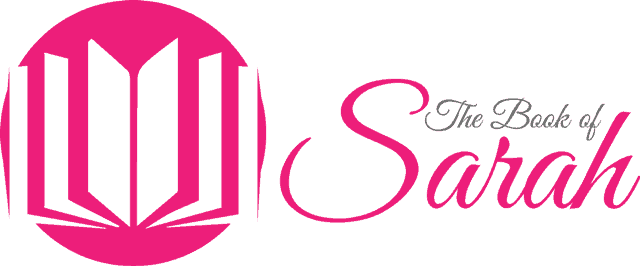5 books that can make you more productive and less lazy
Do you wish you were more productive and less lazy? Do you wish you can get more out of your day? Don’t we all? We know what needs to be done but we can’t seem to get to do it. Our to-do lists may be as long as our arms, but yet we can’t seem to get anything done.
Are you sitting on a project that you know needs to be done but you are not motivated enough to do it?
Our minds are made to settle for that which makes us comfortable and avoid situations that make us uncomfortable. It turns out that the things that need to be one for us to achieve some traction really make us uncomfortable.
Here are some books that can help your productivity such that you become more productive and less lazy.
Books that will help you become more productive
1. Deep Work by Cal Newport
I read this book just when I needed it. I had so many deep work that needed to be done, I had a book to write and a research paper to publish but I couldn’t find time to do it.
Instead, I spent most of my days on what Cal Newport calls shallow work. Emails, social media posting, day to day work and so little time for my deep work.
Newport gives the most amazing productivity hacks in this book, but most importantly, he gives some tips on what you need to do when you need to get some deep work done.
Get key points from Deep work in this 15 minutes summary on Blinkist
We think we are productive if we exceed working hours such that we extend working into the night or wake up at the crack of dawn to get things done.
Newport shows that you may just need as little as 4 hours a day for your deep work. If you get rid of all distractions, ensure that you are well-fed, don’t need bathroom breaks, your phone is off, you are off social media and you are fully focused on your work, you may get so much done in those 4 hours.
If you keep this up for a month or two, you’ll find that you have excelled so far into your deep work.
2. The 4-hour workweek by Tim Ferris
Tim Ferris gives tips on how to get rid of a lot of time wasters. The most effective advice he gives is checking your emails and messages only so many times a day. In addition, Ferris advises us to be effective, not efficient.
He suggests that we spend our time effectively, and the 20% of things that get us 80% results. What we do should be productive, you can’t say you had a productive day if you spent it filing, rather than working on something that actually gets results.
Reducing distractions to free up time to do the right things, and automating some of our activities can lead to increased productivity.
3. The War of Art by Stephen Pressfield
Stephen Pressfield talks about the things that get between us and creativity. Fear is one of them. Resistance to get work done is powered by fear. What we fear that we cannot conquer, we resist working on it.
Stephen Pressfield talks about you, like many others, struggle with resistance. Regarding productivity, he simply advises that you should go pro or go home.
You have to treat the creative process as if it were a job. You cannot choose not to do it today because, well, you don’t feel like it if it were a job. However, we often do this when it comes to creativity.
Get the key lessons from the War of Art in 15 minutes on Blinkist
If you wait to work only when inspiration strikes, you will get nothing done. However, if you focus to get things done at certain times, you will tune your mind to productivity when this time arrives.
I write only when inspiration strikes. Fortunately, it strikes every morning at nine o’clock sharp. – W. Somerset Maugham
Schedule time to work on what you need to work on, then show up and get it done.
4. The 7 habits of highly effective people by Stephen Covey

Stephen Covey emphasizes on being effective, something that Tim Ferriss mentions as well. Being productive is not about being busy all the time, but about being busy working on the things that matter.
These books will teach you how to be proactive and take charge of your day, rather than grumbling and shifting blame when things are not going your way. It will teach you to tell the difference between what is urgent and what is important.
Productivity, deep and important work is not achieved by working on urgent things. It is achieved by working on important things. Things that will make a change in your life and your career and propel forward.
Addressing procrastination, he offers workable tips on how we can deal with procrastination and get more done using personal management. If you want to develop good habits, this is the book to go for.
It covers how you can improve all aspects of your life from productivity, relationships, and careers and simply improve the value of your life.
5. No excuses- The power of self-discipline –Brian Tracy
Brian Tracy created a whole book about self-discipline. Without self-discipline, we may never get anything done. Brian Tracy teaches the value of hard work and how we can use self-discipline to get anything we want.
He discusses the importance of self-discipline in all aspects of your life such as career, character, at work, in relationships, in goal setting and personal excellence.
Listen to the key lessons from this book in 13 minutes on Blinkist
Further, the book shows how being productive is not working on something for a few days and then giving up when we don’t see immediate results. Instead, he shows that persistence and courage are important.
I have discussed how fear hinders our productivity when we avoid getting things done when we feel that we are not good enough. Productivity, therefore, calls for courage. It also calls for persistence and working on something, with discipline over a long time to get the results you want.
This is similar to what Angela Duckworth discusses in grit that persistence is the key to success. We become successful when we stick to our goals over a long period of time.
No time to read? Check out the summary of the books on Blinkist. Blinkist takes the key lessons from some of the most awesome books and presents them to you in a summary of 15 minutes or less.
Even better, you can listen to the lessons from the books if you don’t have time to read, or if you don’t like reading.










Comments